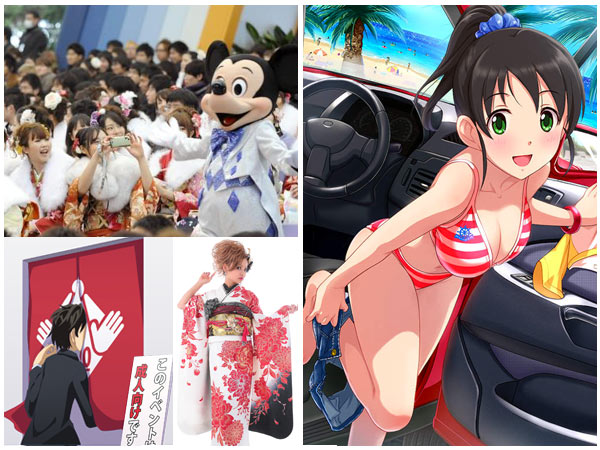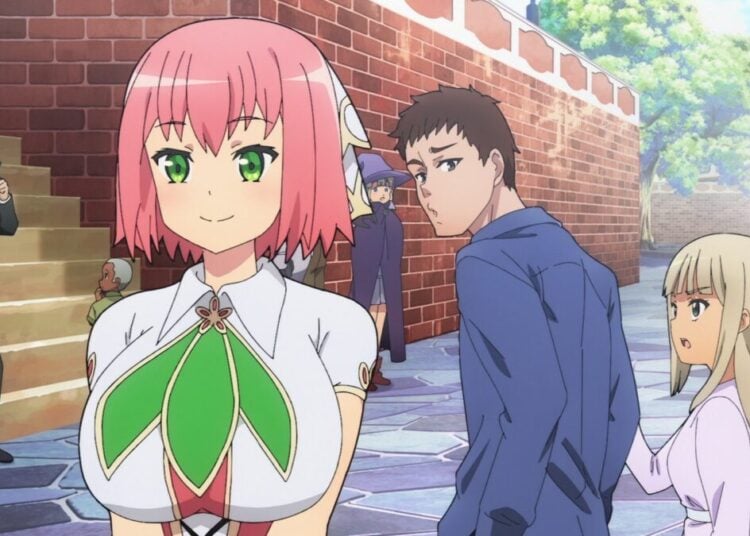
Today is a holiday in Japan called 成人の日 Seijin-no-hi, or Coming-of-Age Day, essentially the day when Japanese who have turned 20 years of age are officially recognized as being adults and full-fledged members of society. Venture into any Japanese city right now and you’ll see hundreds of young people decked out in beautiful kimonos and smart new suits, greeting each other and taking group photos together. Later they’ll gather at the local civic center and listen to long, boring speeches by the mayor and other city elders, who will talk a lot about 責任 sekinin, or taking responsibility as a new member of society. (Residents of Chiba Prefecture are extra lucky: they get to have their ceremony at Tokyo Disneyland.) Japanese always have two core circles of friends: those from nearby neighborhoods that they went to elementary and junior high school with, and a separate group from high school or university, and today is a day for everyone to catch-up with friends they haven’t seen in years. For parents it’s a proud day, too, and doting fathers are all too happy to plunk down $5000 for a gorgeous kimono that their daughters will in all likelihood wear only once. In the past, Coming-of-Age Day was always held on January 15, even if that day fell on a weekend, but a few years ago the Japanese government began its “Happy Monday” initiative, which moved these holidays to the nearest Monday.
When you think of transportation in Japan, you might think of a country crisscrossed with rail lines, from the speedy shinkansen bullet trains to convenient local trains and subways. While trains in Japan are certainly convenient, the reality is that anyone living outside a big city like Tokyo or Osaka needs a car to get around. J-List’s home prefecture of Gunma boasts the highest number of cars per family, with all households having one car and most having a second one, which compares with Tokyo, where 60% of households don’t bother owning a vehicle. While gasoline prices in the U.S. have been falling nicely, they’ve only dropped a little here in Japan, to around $1.15 per liter/$4.38 per gallon, down from a high of $1.44 per liter/$5.40 a gallon. Like all countries, Japan has an extensive network of roads, some of which are engineered with amazing skill – I personally believe the Tokyo Expressway, a sprawling elevated freeway that runs 50 meters above Japan’s capital, should be counted as one of the Wonders of the World. All that engineering comes at a cost, however. While paying a toll to ride on the freeway is rare in the U.S., especially on the West Coast where I’m from, this isn’t the case in Japan, and driving the 100 km from J-List to Tokyo costs around $25 each way.
Valentine’s Day is right around the corner, and you might have noticed some really amazing new chocolates and other snacks being posted to J-List’s snack pages. We’ve got a great lineup this year, from Rilakkuma chocolates to Hello Kitty-shaped chocolates to Attack on Titan chocolates so you can build your love-shrine to Levi. Browse our newest snacks from Japan, or sort the products by customer ranking.
















